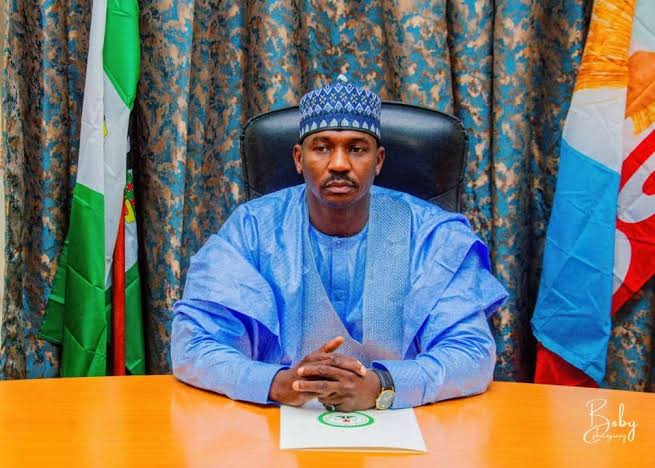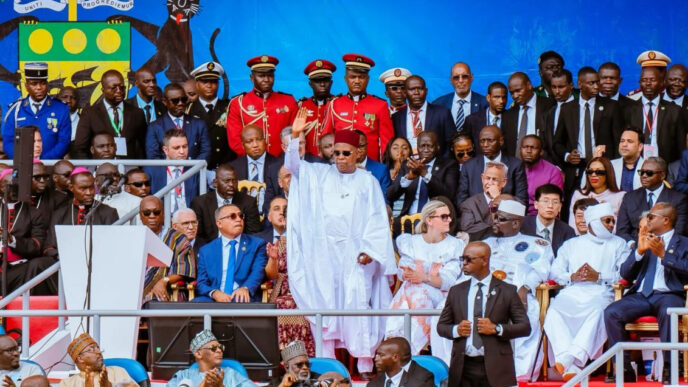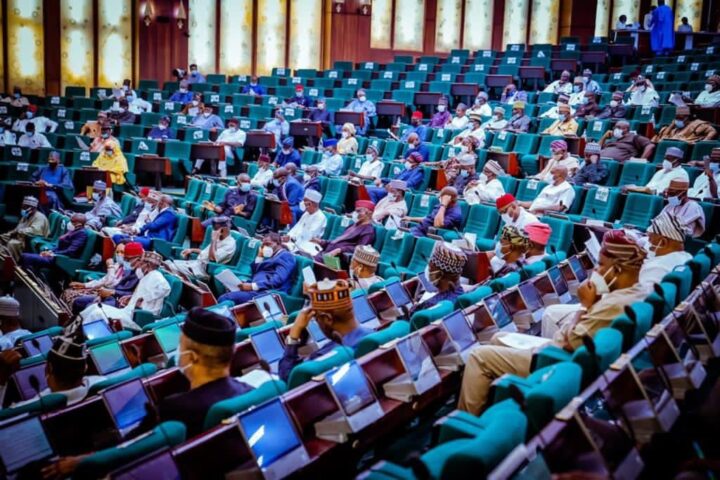Ideally, no citizen of Nigeria should be discriminated against as “”non-indigene” in any part of the country, simply because he chooses to live and ply his legitimate trade in a section of the country other his own place of origin. By subscribing to this constitutional and moral code, and practicalizing in words, deeds, ad accepting all Nigerians resident in Sokoto state as indigenes, Governor Ahmad Aliyu Sokoto shines brightly as a beacon of hope for national unity and champion of inclusivity.
Indeed, Governor Ahmad Aliyu has always acquitted himself as a true leader who exercises executive and administrative powers in a just and fair manner, that’s worthy of emulation by his peers. It is no wonder that even his political opponents see in him the sterling qualities of the celebrated late Sardauna of Sokoto, Sir Ahmadu Bello,the powerful Premier of the northern Region.
There are many examples to buttress the description of Dr Ahmad Aliyu Sokoto as a true leader but, for the purpose of this write up, we would focus on the issue of removing the dichotomy between indigenes and non-indigenes in Sokoto state which would no doubt foster national unity and social cohesion.
The issue remains a sore point in our quest for unity.
The Sultan of Sokoto, Alhaji Muhammad Sa’ad Abubakar III, during his 2025 Sallah homage to the governor, called attention to the fact that, in Sokoto state under Aliyu’sadministration, “all Nigerians residing in the state are treated as indigenes, thereby giving everyone a sense of belonging.”According to the Sultan, “in Sokoto state, we don’t have non-indigenes, but rather members of the resident community.” This means that the government does not discriminate against any group or any part of the state in the distribution of the dividends of good governance.
Close watchers of the award-winning Governor of Sokoto state see him as a pacesetter. They can readily recall many instances in which he had acted ahead of his peers in the drive to push the frontiers of social and economic development of his state. For example, months before the landmark judgement of the Supreme Court that awarded financial autonomy to the 774 local government councils of Nigeria, GovernorSokoto had accented to an executive bill which guaranteed a three-year tenure for all elected local government functionaries in Sokoto state, and committed the state government to zero interference with their statutory allocations from the Federation account.
Others may also recall, with appreciation, Governor Aliyu’s initiative to reform the Almajiri Islamic education system, when his peers in some other affected states only agonize over the menace of street begging, but remain very much unwilling to take concrete steps to implement the necessary reforms to curb the social menace associated with the Almajiri system.
In line with his reputation for setting the pace, Dr Ahmad Aliyu Sokoto has also gone on record for taking concrete steps to remove the non-indigene syndrome in the political dictionary of Sokoto’s State. This may look insignificant, especially to citizens of Nigeria who have not directly suffered the pains and humiliation of being maltreated, excluded from jobs or, otherwise, denied access to official programmes of the government, for the sole reason of being a “non-indigene’’ of the part of the country they chose to live and thrive.
Truth be told, it is not only morally wrong, but offensive to the Constitution of the Federal Republic of Nigeria, for a bona fide citizen to be tagged a non- indigene and discriminated against because they choose to settle and ply their lawful business in that part of the country. A citizen retains full rights consistent with his status irrespective of where they live within the territory of Nigeria.The 1999 constitution (with its amendments) provides adequate legal protection for all citizens of Nigeria against discrimination of any type.
Chapter IV, Section 42 (1) of the supreme law of the land clearly states that: “A citizen of Nigeria of a particular community, ethnic group, place of origin, sex, religion or political opinion shall not, by reason only that he is such a person, be subjected either expressly by, or in the practical application of any law in force in Nigeria, or any executive or administrative action of the government, to disabilities or restrictions to which citizens of Nigeria of other communities, ethnic groups, places of origin, sex, religion or political opinions are not made subject. In the same way, citizen of the country would not be accorded any privilege or advantage that is not accorded to citizen of Nigeria of other communities, ethnic groups, places of origin, sex, religion or political opinions.
It takes a conscientious person like Governor Sokoto to operationalize this section of the constitution. Considering his antecedents Governor Sokoto without this constitutional provisions would still have implemented this policy because it’s the morally right thing to do.
While discrimination against the citizen, for whatever reasons, is illegal and actionable, it is sad to say that countless Nigerians still face subtle and even open discrimination, sometimes, by the very authorities charged with the onerous responsibility of promoting unity and national cohesion. Some have been denied accommodation, prevented from acquiring property or plying their lawful businesses; and some have been chased away from voting centres, for the sole reason of coming from a different ethnic group, place of origin, religion or political opinion.
Nigeria, definitely cannot develop if this issue is not addressed. America,has been developed by immigrants from all over the world,including Nigerians.
In fact, in some states of the federation, governors deliberately exclude certain parts of the metropolis populated by “non-indigenes” when citing social amenities like roads, hospitals and public schools. Sadly, again, these flagrantly violations of the constitution, even when they occur in broad daylight and published in the mass media, have never been prosecuted or punished in the court of law to act as a deterrence.
It is good to know that Governor Ahmad Aliyu has committed himself to removing the non-indigene syndrome, not only because the constitution stipulates it, but because he personally believes that it is wrong to segregate among the citizens and create a form of apartheid in the delivery of social services. The governor has been intentional in letting all residents of Sokoto state know that the state government exists to serve every law-abiding citizen without any form of discrimination.
As they say, action speaks louder than words. Governor Ahmad Aliyu walked his talk about inclusive governance in the way he acted to transform Sahara area of Sokoto metropolis. Prior to his coming, Sahara was totally ignored by successive administrations in the provision of social amenities. It can be argued that past governments neglect of Sahara settlement was not deliberate, being that governments typically provide infrastructure in phases due to shortage of funds. But it is also true that Sahara settlement is mostly populated by citizens whose places of origin are outside Sokoto state. Governor Ahmad Aliyu Sokoto proved to be different when he moved into Sahara quarters and constructed several township roads and transformed a once forsaken settlement to highly livable quarters.
Some naysayers may raise the counter the motion that there are not enough reasons yet to conclusively state, as the Sultan seemed to imply, that Sokoto state has totally eliminated the offensive dichotomy between indigenes and non-indigenes. For example, they may argue that citizens of Nigeria outside of Sokoto state are nominally represented in the cabinet of Governor Ahmad Aliyu Sokoto, but we do agree that building a nation is a journey, not a destination. We must admit that the journey has started well in Sokoto state under the watch of Dr Ahmad Aliyu Sokoto.
So, Governor Aliyu’s leadership style remains a beacon of hope for a more inclusive and unified Nigeria. By treating all Nigerians as indigenes of Sokoto state without discrimination, he has demonstrated that our diversity can be source of strength, not a debilitating weakness. As the country continue to navigate its complexities, the Sokoto state example serves as a shining example for other leaders to follow.
Gatekeepers News is not liable for opinions expressed in this article, they’re strictly the writer’s








